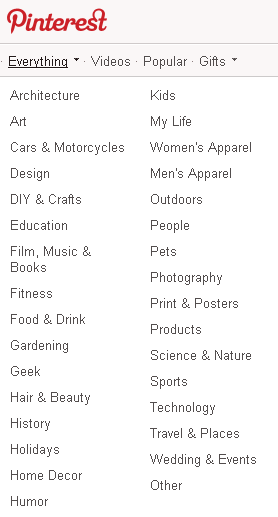
Craigslist has it all: shared apartments, casual hook-ups, a decent used (possibly stolen) bike, belay buddys for the local indoor climbing gym. And jobs, maybe especially jobs.
But some of the jobs are almost as exploitative as some of the sex trade posts. Check out this one—text given in full:
Web Content Editors: “Web Content Editors (Telecommuting okay)
A personal PR firm is seeking skilled, detailed editors experienced in editing web copy. This is a remote contract position with flexible hours, but we do require that you edit a minimum of five pieces per week.
As an editor, you will work directly with the firm’s team of editors and writers on polishing professional biographies for executives and high-profile clients.
The ideal candidate will demonstrate the ability to catch minute grammatical errors as well as possess excellent editorial skills. As a an important gatekeeper of quality, candidates will edit content for organization, language and word choice, tone, quality of content, length, spelling, punctuation, and syntax. All candidates must have prior editing experience as well as possess a proficiency in The Chicago Manual of Style and MS Word. An undergraduate or graduate degree in English, or a certificate in editing, is preferred but not required. Experience editing finance, legal, or medical copy is a plus.
We manage and pay our team on the oDesk platform. Editors receive $5.00 per piece edited (this is the net amount to you after the 10% oDesk fee). Each piece is 250-350 words. Our editors average about three pieces per hour.
Please respond with a succinct cover letter and ensure that you have completed the Education and Employment History sections on the Resume tab of your oDesk contractor profile. Please apply online at https://url.odesk.com/ijalxm. If you do not have an oDesk contractor account, please create one first at http://www.odesk.com. Applicants must also take the U.S. English Chicago Style Editing Skills Test (#505) on oDesk prior to applying.
In other words, they want experienced copyeditors with college degrees to work for $15/hour – with no benefits, job security or guarantee of work… Okay, maybe not quite as bad as a sex trade ad, but still…
According to Payscale, the hourly salary for copyeditors with 1-4 years of experience ranges from $10-25. So the pay here would be within the range, albeit a bit low—but that range is based on a steady job with benefits. And Payscale’s estimate seems low.
Robert Half International lists a salary range for proofreaders of $35,000 to $51,000—or around $17 to 25/hour, for a fulltime position with benefits—and for a copyeditor with 1-3 years experience the salary range is $36,750-49,750. In San Francisco, according to GlassDoor, the median salary for a copyeditor is $50,000 (around $25/hour – with benefits).
And remember, if you earn much from freelance work, you’ll have to pay taxes and social security, etc. on it, just like you would if you had a real job. That can come as a real stock on April 15th, even if you only earned a couple thousand dollars.
Want health insurance to go with your sweated labor? According to eHealthInsurance, “the average premium paid for individual health insurance coverage in the United States in 2011 was $2,196 per year ($183 per month).”
The future, or really the present, of work in the United States may be flexible—read, deeply uncertain and precarious—work such as this, but right now, the system is geared toward maximum exploitation, and is really only viable through forms of externalization.
In San Francisco, many people I know trying to make a living this way can only do so by relying on all sorts of help and support: from the free internet at cafés to the city’s low cost health plan—or even by using the free cost, high time and stress options available around town (public ER at SFGH or the awesome Haight Ashbury Free Medical Clinic). Along with occasional, free meals and food handouts from local charitable organizations. And dumpster diving.
When web content is being produced, edited, maintained by people using café’s wifi, eating out of soup kitchens, with no health protection or retirement savings… That’s called exploited labor, and is not sustainable even in the medium term. Some try to romanticize it by celebrating their dumpster diving for survival as living a freegan lifestyle (something I generally support, as a challenge to capitalism and consumerism) and going on about their freedom to work when and where they want.
But mostly what it is is the freedom to live in insecurity.
And only until they’re old. Because they’ll have no retirement savings. And this country will have no social security or medicare for the elderly. They will starve and die on the streets.
What we need is a new Processed World to attack these practices. What we need is what takes shape in Cory Doctorow’s amazing, insightful For the Win.
Refuse to produce content for free – like reviews on Amazon – and refuse to work for anything less than a living wage.
What we need is a WILDCAT STRIKE on teh interwebs.












 Yesterday
Yesterday







